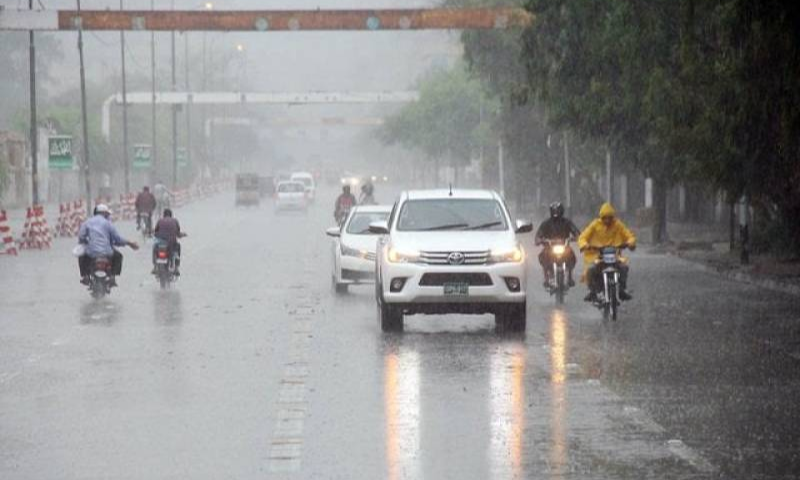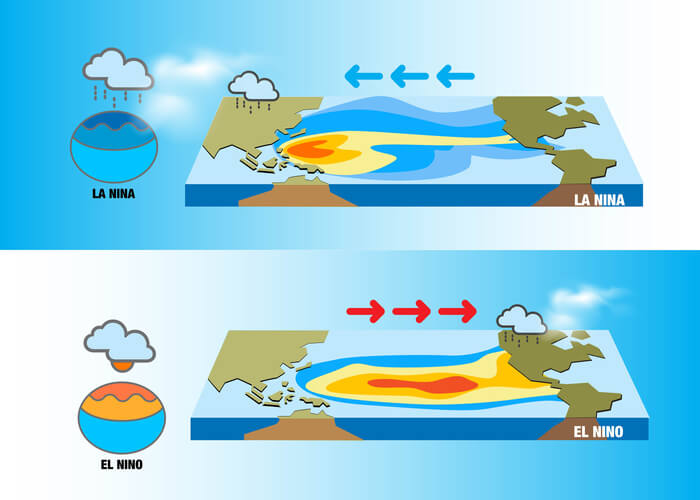Various regions of Pakistan are experiencing extreme heat these days and its intensity is predicted to increase further this week.
It should be noted that around 100 people have died due to heat wave in India. According to Indian media, 54 of the dead are from UP and 42 from Bihar. The age of the dead people is said to be 60 or more, 15 districts of Bihar are in the grip of extreme heat.
The Pakistan Meteorological Department has warned in an alert that heat wave will remain in different parts of the country for the next five days.
According to the Department of Meteorology, the temperature may increase by six degrees Celsius in different parts of the country from Tuesday, June 20 to June 24.
The Meteorological Department says that the coming heat wave will affect the length of the country and during this time the normal temperature in every part of the country is expected to increase by two to six degrees Celsius.
According to the Meteorological Department, the reason for this extreme heat is the high air pressure in the atmosphere
During the period from June 20 to June 24, the day temperature may increase by four to six degrees Celsius in Upper and Central Punjab, Islamabad, Upper Khyber Pakhtunkhwa, Gilgit-Baltistan and Pakistan-administered Kashmir, while in Sindh, South Punjab and Balochistan, the day temperature may increase. The temperature is expected to be two to four degrees Celsius higher than normal.
According to the Department of Meteorology, there is a possibility of rain with wind and thunder in some places in the plains and hilly areas of the country during this intense heat, but this rain will prove to be only a temporary relief.
According to the alert of the Department of Meteorology, “Due to the increase in temperature, the demand for electricity and water will increase in the coming days”, while the public should take precautionary measures to avoid the heat and go out unnecessarily during the day. It has also been instructed to avoid
During the heatwave coming this week, the temperature is expected to exceed 50 degrees in the hottest areas of the country.
During the last 24 hours, Sabi was the hottest region where the temperature was 47 degrees Celsius, while Jacobabad and Nawabshah recorded 46 degrees Celsius. is likely to do
According to the Department of Meteorology, the temperature of the federal capital Islamabad may increase from 39 degrees to 44 degrees Celsius due to the increase in heat intensity.
Temperatures in Karachi are predicted to go up to 38 degrees Celsius, but according to officials, ‘it will feel like 42 degrees Celsius so be very careful.’
According to the organization, “during this time, sea winds will continue to blow in Karachi from the southwest, however, the feeling of heat will prevail due to the increase in humidity in the air.”
Even in Peshawar, the mercury may touch 45 degrees Celsius, while the effects of the heat wave will be felt even in Gilgit-Baltistan and during this time, the temperature of Gilgit is likely to go up to 44 degrees Celsius.
Effects of extreme heat on our body and its prevention
As the body temperature warms up, blood vessels begin to dilate. This causes the blood pressure to drop and the heart has to work harder to pump blood around the body
It can also cause irritation marks on the body and inflammation in your feet. Along with this, due to the loss of water and salts in the body due to sweating, their balance in the body changes.
Symptoms of low blood pressure can include: dizziness, fainting, confusion, nausea, muscle cramps, headache, heavy sweating. , feeling tired. It should be noted that if the blood pressure drops too much, the chances of a heart attack increase
Whether we are in a blizzard or a heat wave, our body strives to maintain a temperature of 37.5 degrees Celsius. This is the temperature at which our body has learned to function. But as the mercury rises, the body has trouble keeping its core temperature down. In these conditions, our body opens up the blood vessels near the skin so that we sweat and lower the body temperature.
Sweat dramatically increases heat loss from the skin by drying it out. This process sounds simple, but it puts a lot of stress on the body, meaning that the higher the temperature, the more the stress on the body increases.
These open arteries lower blood pressure and our heart has to work harder to pump blood around the body. Leaking open arteries can cause symptoms such as swelling in the feet and itchy calluses. But if the blood pressure drops too low, less blood will reach the parts of the body that need it the most and the risk of a heart attack will increase.
Move the affected person to a cool place.
If the body temperature drops within half an hour, there is nothing to worry about
The UK’s National Health Service recommends that:
• Move the affected person to a cool place
• Lie down and elevate the foot slightly
• Give plenty of water, or rehydration drinks or drinks. •
Cool the affected person’s skin, spray it with cold water and fan it. Ice packs or ice can also be placed near the armpits and neck
However, if the affected person does not feel better within 30 minutes, it means that they have heat stroke. This is an emergency and you should call medical personnel immediately.
People suffering from heat stroke may stop sweating even when they are hot.
After the victim’s body temperature rises above 40 degrees Celsius, they may faint or have seizures.
Healthy people can protect themselves during a heat wave by using common sense, but some people are more prone to catching the flu. Older people or those with underlying medical conditions such as heart disease may find it difficult to cope with the stress that heat puts on the body.
Diabetes 1 and 2 cause the body to become dehydrated more quickly, and the disease can affect the arteries and the ability to sweat.
It is also important that you understand that your body temperature is too high and that you should do something about it. We don’t take it too seriously, but children and people with mental illnesses can be more vulnerable to heat waves
Homeless people will feel the heat of the sun more and people living on top of flats will also experience higher temperatures.
It is also worth noting that the use of certain drugs during a heatwave can be harmful. However, people need to take their medications as usual and try to keep their body temperature as low as possible and drink plenty of water.
Diuretics, also known as ‘water pullers’, increase the loss of water from the body. They are used by people suffering from heart disease. In high temperature, due to these medicines, there is a risk of dehydration and mineral imbalance in the body
Antihypertensive drugs that cause a drop in blood pressure cause blood vessels to dilate to cope with the heat and cause dangerous drops in blood pressure.
Medicines used for diseases like epilepsy and Parkinson’s stop sweating, which prevents the body from cooling down. These drugs include lithium and statins in the body, which can become a problem by increasing their levels in the blood.
When it comes to heat deaths, about 2,000 people die each year due to high temperatures in England alone. Many of them die of heart attacks and strokes as the body tries to maintain its normal temperature.
Most deaths occur when temperatures exceed 25-26 degrees Celsius. However, emerging evidence suggests that most deaths occur in spring or early summer rather than at the height of summer.
One of the reasons for this is that with the arrival of summer, we start to change our daily habits and with time we start tolerating the heat.
Data from past heatwaves show that deaths increase very quickly, within the first 24 hours of the onset of heatwaves.
In such a case, the question arises that how to keep the body cool? So you need to make sure that you are drinking as much water or milk as possible. There is no harm in drinking tea and coffee. However, avoid drinking large amounts of alcohol as it can increase the risk of sudden dehydration
If the heat outside your house is hotter than the heat inside the house, it would be better to keep the windows of your house closed and keep the curtains closed.





